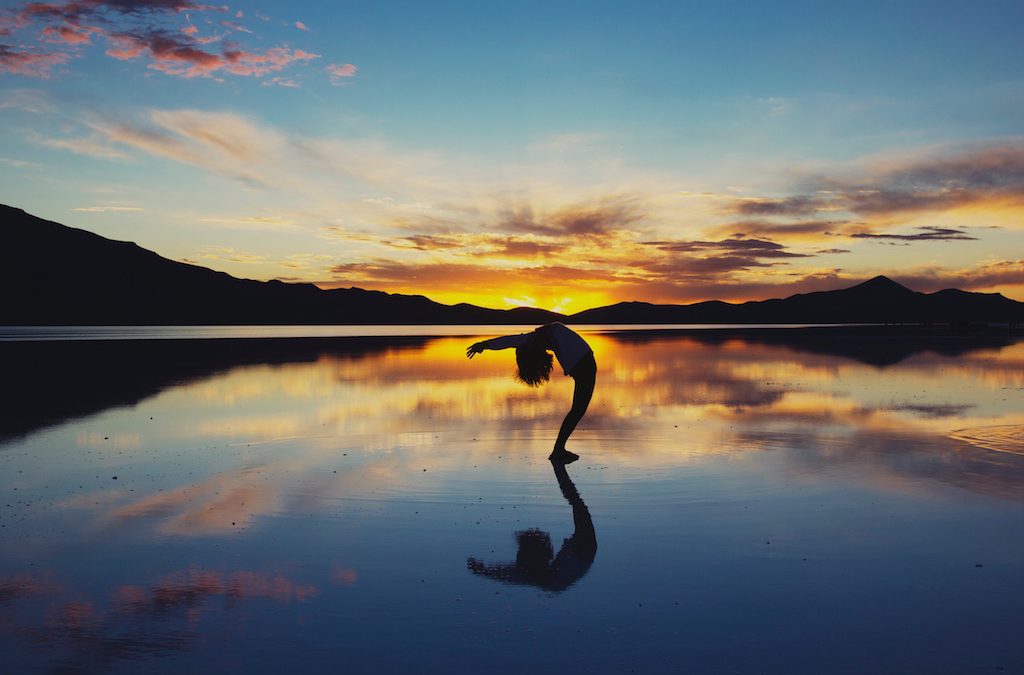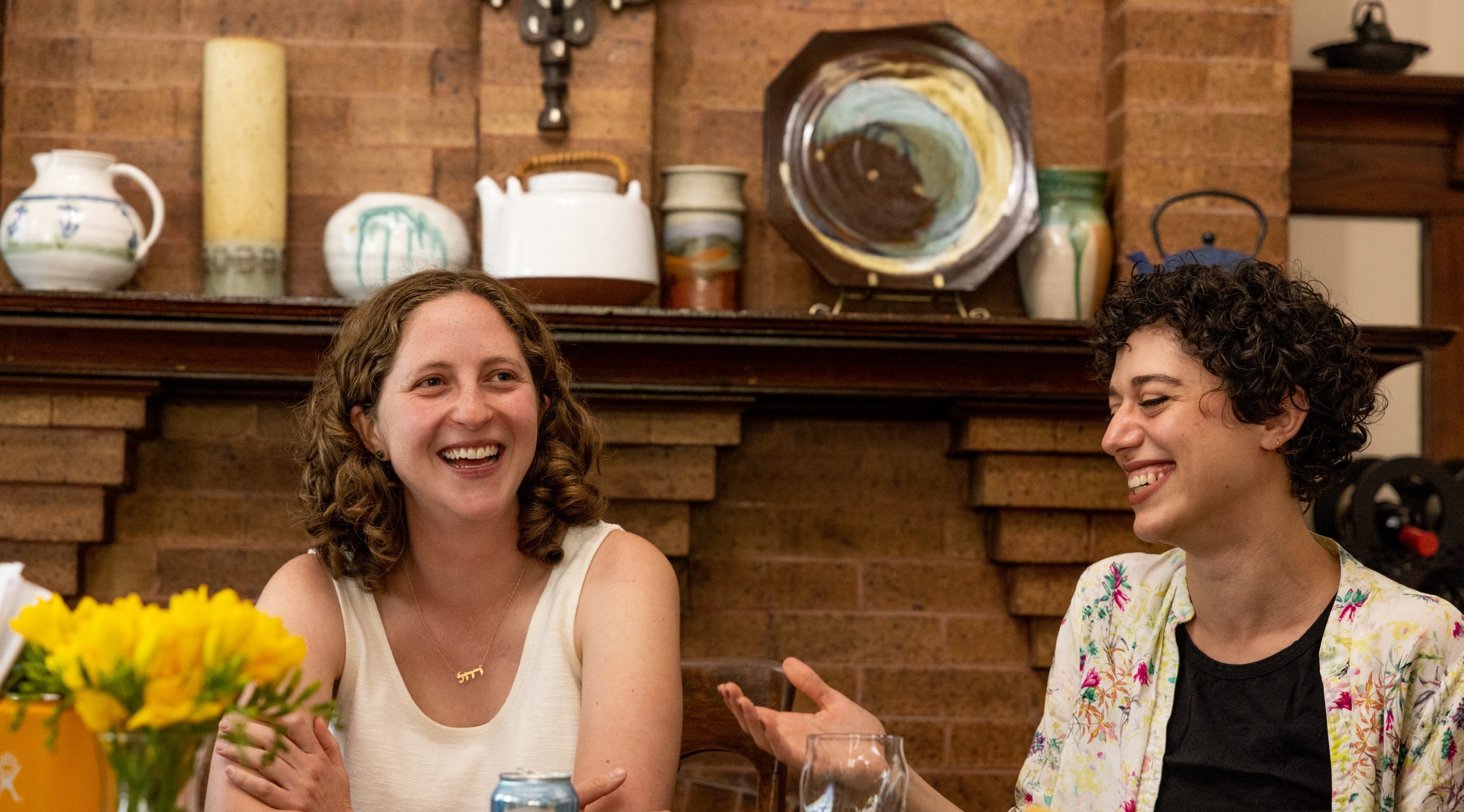
Aug 1, 2019 | by Rabbi Lisa Goldstein, Former Executive Director, Institute for Jewish Spirituality

The phrase “community of practice” is one of those bandied-about terms that seems particularly suited to Jewish spiritual groups: Community and practice – how obvious and how obviously beneficial!
And yet, it’s also not so simple. Just because you happen to share a profession, a craft or a practice with a group of other people doesn’t mean that the group will in fact be supportive or a good learning environment. The stories to the contrary are many and we might even say that particularly in our individualistically oriented society, the difficulties of communities of practice sometimes seem to outweigh the benefits.
One way to address this is to think of creating communities of practice as a spiritual practice itself. We can start by setting explicit intentions. By setting an intention, we have an anchor that we can return to – again and again – when we notice that we have moved away from the intention.
Those of you who have participated in IJS retreats know that we begin each retreat with guidelines about creating intentions around safety. They include things like being aware of judgment arising and trying to hold it with curiosity instead of conviction; assuming and extending welcome; allowing people to listen to their own inner voice, even when we think we know what it should say; “double confidentiality” which gives people the space to say something vulnerable and not have to revisit it unless they so choose. These guidelines help create intentions for a community of practice that supports the participants in the community in doing their own deep work of truth telling and loving kindness.
In your communities of spiritual practice, what are your intentions? What kind of community are you intending to create? What kind of transformation are you hoping to cultivate? What are the conditions that will help facilitate that? How do you communicate them to the entire community?
It sounds easy – and it’s not, even in the relatively small and temporary context of a retreat. But, as those of you who have participated in IJS retreats also know, the effort is worth it. As our summer retreat season closed, we saw once again the true power of a community of seekers, coming together and finding a safe environment, the way the heart can open, bonds can form and deepen, awareness expand. And those experiences can give us inspiration and fortitude to take with us as we continue on our way.

Sep 3, 2018 | by Rabbi Lisa Goldstein, Former Executive Director, Institute for Jewish Spirituality
 In just two short weeks, the High Holy Days will be upon us: a new year, a new beginning, a new opportunity to live our lives a little more in alignment. At first glance it may seem a little odd that Rosh Hashanah is also known as Yom Hazikaron, the Day of Remembrance. If we are setting our sights forward and reconnecting to the possibility that in every moment we are recreated as a new creature, as R. Levi Yitzchak of Berdichev put it, why would we begin the season with remembering? Why not focus on envisioning?
In just two short weeks, the High Holy Days will be upon us: a new year, a new beginning, a new opportunity to live our lives a little more in alignment. At first glance it may seem a little odd that Rosh Hashanah is also known as Yom Hazikaron, the Day of Remembrance. If we are setting our sights forward and reconnecting to the possibility that in every moment we are recreated as a new creature, as R. Levi Yitzchak of Berdichev put it, why would we begin the season with remembering? Why not focus on envisioning?
One answer might be to reconsider precisely what we want to remember. Perhaps the Day of Remembrance is not a call for nostalgia or regret for days gone by. Instead, we might see it as an invitation to recall – and recommit to – our intention, to setting a direction for the purpose for our life.
The High Holy Days are a shining example of a spiritual practice that offers us its transformative power, to live more awake, aware and loving lives. We have inherited beautiful forms, rituals and practices, to help facilitate that. But then we forget why exactly we are engaged with these forms. Nonetheless we continue on and wonder why the rituals and practices are so empty. It’s not our fault that we forget: We are subject to so much information and sensory input that our brains are designed to forget as much as to retain. That protects our sanity (most of the time), but it also saps meaning from our lives.
The practice of setting an intention is there to help us remember to remember. It is helpful to begin each session of practice with an intention. Why am I engaging in this prayer? In this meditation? In this Torah learning? What quality of presence do I want to bring to it and how do I hope it might transform me? It is a small but crucial step of contemplative practice; in fact, it is what distinguishes spiritual practice from just any habit.
So on Rosh Hashanah this year we have another opportunity to remember. In fact, it’s a kind of meta-reminder. The holidays asks us to remember: Who is the person I yearn to be? What is the quality of relationship that I want in my life? What kind of a world do I wish to live in? And then within each ritual of the day, the shofar blast, the once-a-year melodies, the apples and honey, is a chance to practice remembering the intention. How can this particular act help remind me of those overarching questions I am asking about my life?
Shanah tovah to you all! May it be a sweet and intentional year.




 In just two short weeks, the High Holy Days will be upon us: a new year, a new beginning, a new opportunity to live our lives a little more in alignment. At first glance it may seem a little odd that Rosh Hashanah is also known as Yom Hazikaron, the Day of Remembrance. If we are setting our sights forward and reconnecting to the possibility that in every moment we are recreated as a new creature, as R. Levi Yitzchak of Berdichev put it, why would we begin the season with remembering? Why not focus on envisioning?
In just two short weeks, the High Holy Days will be upon us: a new year, a new beginning, a new opportunity to live our lives a little more in alignment. At first glance it may seem a little odd that Rosh Hashanah is also known as Yom Hazikaron, the Day of Remembrance. If we are setting our sights forward and reconnecting to the possibility that in every moment we are recreated as a new creature, as R. Levi Yitzchak of Berdichev put it, why would we begin the season with remembering? Why not focus on envisioning?